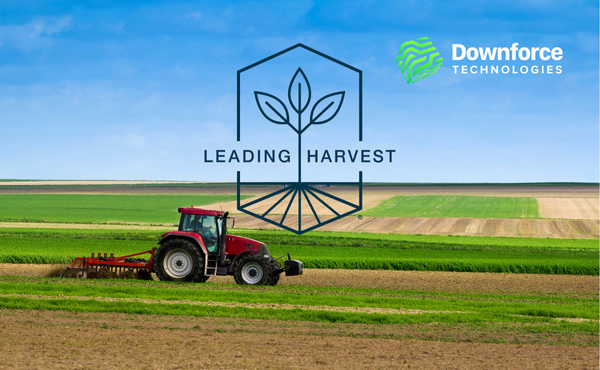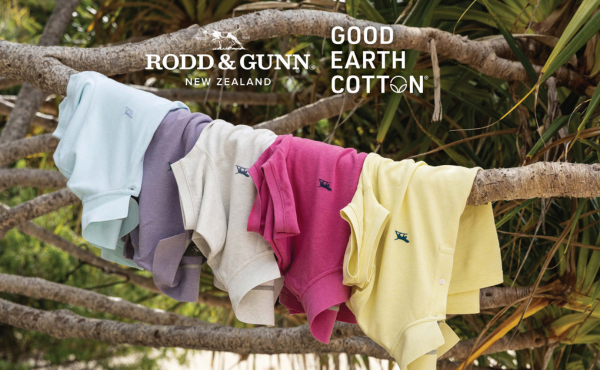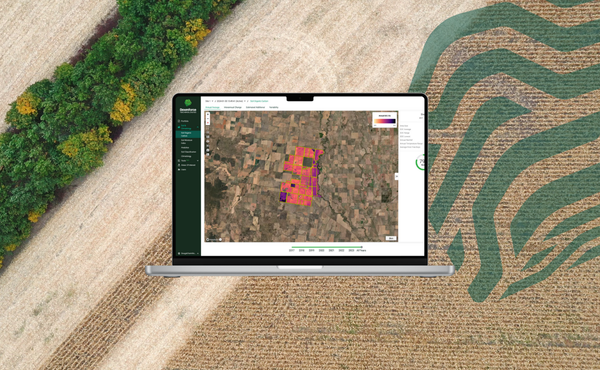From Field to Fashion
As the fashion industry strives to achieve its Net-Zero ambitions, the need for accurate, high-quality data on the environmental impacts of clothing production becomes crucial. At Downforce Technologies, we specialise in providing science-led, nature-based intelligence on soil health and soil organic carbon (SOC) to support sustainable production of raw materials.
Promoting Healthy Soil: The Cornerstone of Sustainable Fashion
Fashion companies have a critical role in helping farmers develop and scale regenerative practices that lead to improved climate resilience and better farm economics. A thriving soil ecosystem serves as the foundation for producing high-quality fibres, reducing reliance on synthetic fertilisers and fostering sustainable land use practices. By prioritising and investing in soil health, fashion brands can enhance the overall sustainability of their supply chains and contribute to building a more environmentally conscious industry
Addressing SOC Variability for Enhanced Land Management
As soil is the world's largest carbon sink, increasing soil organic carbon at the farm level is vital for achieving sustainability goals. However, the inherent variability of SOC, even within a single field, can present challenges. Seasonal fluctuations, diverse weather conditions, different soil types, landscape positions, cropping history and management practices contribute to this dynamic variability over time.
At Downforce, we understand the complexities and dynamic nature of soil fluctuations and provide farms with precise, high-resolution data. This data empowers farmers to develop site-specific strategies for optimising carbon levels, ensuring effective management of soil organic carbon. With our science-led and data-driven approach, you can collaborate with farmers to make informed decisions to enhance soil health and drive sustainable practices.
The Benefits of a Data-Driven Outcomes
By embracing a data-driven approach, you can achieve measurable and impactful sustainability outcomes that drive positive change in your supply chains.
● Sustainable Fibre Production: Healthy soils with higher levels of SOC can support the growth of sustainable fibre crops. When growing cotton, for example, regenerative farming techniques can produce more lint per hectare and therefore a more efficient use of land, resources and water.
● Resilience & Risk Management: Regenerative farming practices, such as diversification of crops and improved soil health, can enhance the resilience of agriculture to climate change impacts. This reduces the risk of supply chain disruptions due to extreme weather events or changing climatic conditions. By integrating improved soil health practices into sourcing strategies, fashion brands and retailers can mitigate supply chain risks and improve the long-term sustainability and stability of their operations.
● Maximise Yields & Crop Productivity: Optimal SOC levels improve soil fertility, nutrient availability and water retention, resulting in increased yields and enhanced crop productivity. Investing in carbon enhancement measures promotes long-term soil health, creating a sustainable foundation for your farming operations and ensuring the productivity and viability of the land for future generations.
● Improve Water Retention & Drought Resilience: Soils with higher carbon content have superior water-holding capacity, enabling them to retain moisture for longer periods. Water scarcity is a pressing issue in many textile-producing regions, and regenerative practices can help alleviate the strain on local water resources.
● Achieve Cost Savings: Practices aimed at increasing carbon, such as cover cropping and conservation tillage, reduce the need for synthetic fertilisers and other inputs. This not only saves money, but also promotes sustainable and eco-friendly farming practices.
● Biodiversity & Ecosystem Preservation: By supporting SOC-rich soils, fashion brands can contribute to the preservation of biodiversity, protect valuable ecosystems and promote sustainable land management practices.
● Social & Ethical Responsibility: By embracing nature-positive solutions, the fashion industry can foster a sustainable and equitable supply chain, promoting the well-being of local communities involved in fibre production.
● Consumer Demand & Brand Reputation: By transparently communicating their commitment to SOC and soil health, fashion brands can differentiate themselves in the market, attract environmentally conscious consumers and build trust and loyalty.
Verified Data for Sustainable Impact
Armed with Downforce Technologies’ insights, regenerative agricultural practices grounded in evidence can be implemented, soil carbon sequestration proven, and the impact of sustainability strategies measured and modelled.
Our integrated approach enables scalability across multiple sites, counties, or even countries, eliminating a major barrier to measuring natural capital. Aligned to the ISO14064 standard, the intelligence provided by Downforce Technologies allows you to demonstrate adherence to disclosure requirements and access investment-grade data for green finance opportunities.




